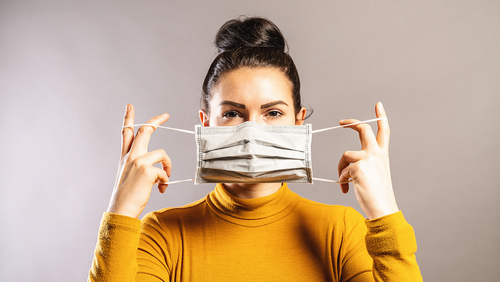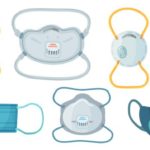What do we know for sure?
By Karen L.
With a pandemic on the horizon, it is a question that runs through everyone’s mind, “should I wear a mask, or do I not need to?” What actually happens when you breathe in and out while wearing a mask? To make an educated decision, one should know the facts in any given situation. The use of cloth face coverings against infectious disease has been well studied, especially for influenza. According to evidence cited on the Swiss Policy Research website, multiple studies conclude cloth masks are completely ineffective. As we have all heard by now, a 2015 CDC study concluded masks did not prevent the spread of influenza. Swiss Policy Research also cites studies supposedly supporting face masks. SPR then proves how those studies used poor methodology or actually show that face masks don’t work. Supporting studies are anecdotal regarding the Swiss Policy Research Center, and are not scientific. When it comes down to the studies themselves regarding wearing the mask, SPR lists risks associated with wearing them:
- CO2 intoxication
- Sudden symptoms:
- Dull headache
- Weakness
- Dizziness
- Nausea or vomiting
- Shortness of breath
- Confusion
- Blurred vision
- Loss of consciousness
- breathing problems
- skin rash
- sudden cardiac arrest
- inhalation of chlorine compounds from the polyesters used in cloth face coverings
- long term effects are not yet known
- Sudden symptoms:
- Permanent symptoms (prolonged exposure):
- memory problems
- difficulty concentrating
- vision loss and
- hearing loss
- Parkinsonism
- tremors
- stiffness
- slow movement
Studies mentioned here have shown that cloth face coverings are ineffective and even harmful, but what are the long-term effects, if one does not suffer a negative effect right away? Are there any studies showing what happens if you wear a mask for over a year, on a daily basis? Knowledge is key, and just as scientists studied the effects of harmful plastics on the health, it was those studies that helped prove that BPA has adverse effects on the human body. That led to a safer movement to avoid BPA plastics, whether it was for bottled water or for baby milk bottles. In saying so, it is crucial to see more studies done on long-term effects of wearing a mask for 2 hours a day, 4 hours a day, or even a full 8 hour shift while working, or even longer in some cases.
Wearing a mask has been proven to have the negative effects listed above, but we should know how bad they really can be. Further studies should take place to see the ongoing effects of these polyesters used on our face, and what one does inhale, whether a polyester itself or a compound used to form the polyester, what can the cause or effect actually be years down the line.
Citation: Dr. Roger W. Koops Oct 16 titled “The Year of Disguises” and published on aier.org — https://www.aier.org/article/the-year-of-disguises/







